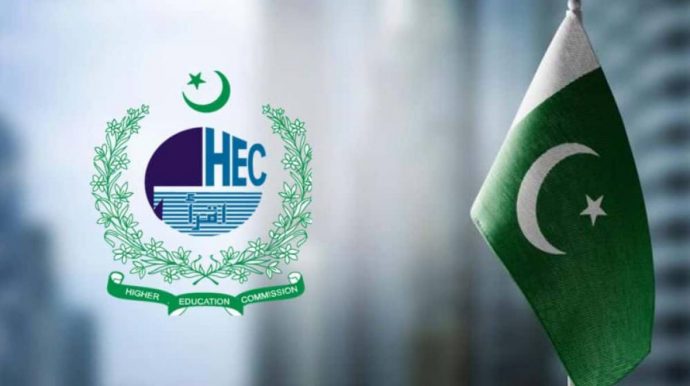
The eighth steering committee meeting of HEC’s Higher Education Development Project is being held.
The Higher Education Commission (HEC) Secretariat in Islamabad hosted the ninth meeting of the Steering Committee (SC) for the Higher Education Development in Pakistan (HEDP) initiative, which is overseen by HEC.
The vice-chancellors, senior officials from federal ministries, provincial higher education administrations, and representatives from the commercial sector make up the SC, the project’s highest forum.
HEC’s $400 million, five-year national flagship project, HEDP, will be implemented to carry out important higher education priorities between 2019 and 2023–2024. The committee members went over the project’s current status.
The conference was headed by Dr Zia Ul-Qayyum, Executive Director of HEC, who stated that HEDP is an important investment for higher education since it helps HEC with its many IT efforts, research, capacity building, and quality assurance initiatives. He continued,
I’m happy to report that HEDP is doing well, having met 81% of its goals. The most recent World Bank mission, which raised the project rating, has further supported this.
Dr. Mehmood ul Hassan Butt, the HEDP project coordinator, provided a summary of the project, including its plans, history, and current status. He also mentioned the recent World Bank mission, which raised the project’s grade to satisfactory in seven components.
He gave the committee a briefing on the main project efforts, including the financial and physical developments, with his team. It was also informed that the project is approaching its last year and that the team is collaborating closely with HEC representatives because these will eventually be taken over by HEC employees in order to continue these initiatives.
Members were kept informed on the status of each project component by the technical heads responsible for that component. Component 1 has finished awarding 10 Rapid Technology Transfer Grants (RTTG), with the goal of resolving Pakistan’s present financial difficulties by promoting industry-academia partnerships that facilitate import substitutes.
Additionally, efforts are being made to compile the results and effects of the funding given out in prior years in terms of research publications, honours, prizes, and creative concepts or products created.
The Component 2 team recently finished educating affiliated college faculty members nationwide in general pedagogy and established 41 Quality Enhancement Cells in Affiliated Colleges (QECACs). In order to make the new HEC QA policy easier to implement, it is also closely collaborating with the HEC QAA division.
The head of the IT component gave members an update on the ambitious goals and initiatives, such as the Data Centre, Enterprise Resource Management, Student Life Cycle System, and related computing and storage capabilities for Higher Education Institutions.
While some of these have already been approved, others are nearing the end of the procurement process. Beyond other professional capacity-building initiatives, the project has helped NAHE conduct faculty training need assessment studies in Punjab and Sindh.
The committee members gave insightful recommendations and expressed gratitude for the HEDP team’s efforts. It was highlighted how Pakistan’s higher education industry lacks public funding, and in response, related mitigation methods for income generation models and financial autonomy were put out. Members were informed that Component 6 provided significant financial support to approximately 100 HEIs with an emphasis on self-sufficiency.
However, by leveraging their intellectual capital and fostering market-industry relationships, the investment proposals that HEIs have submitted need to be strengthened even more. The members also discussed the dire circumstances facing Affiliated Colleges (ACs) in their individual areas. They offered their assistance in working with provincial departments and recommended stepping up project operations in accordance with local demands.
The Committee recommended creating sustainability strategies, particularly with regard to IT and quality assurance measures, and expressed appreciation for the project’s efforts.

Content writer, educationist, teacher, researcher, social media manager, and a SEO manager from lahore. She has been working as a freelance academic and non-academic writer for more than 20 years now. She has a passion to learn new things and has a knack for writing and she combines both things to produce write ups she pours her heart out in.

